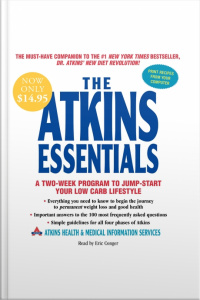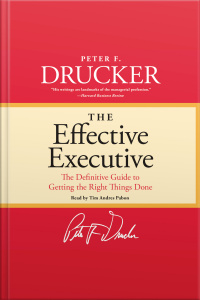Synopsis
Project Management Training Podcasts from Parallel Project Training
Episodes
-
APM PMQ (2024) Reviews (LO6)
06/08/2024 Duration: 15min6. Reviews - This podcast discusses how reviews are a way of gathering information to provide an assessment on the status of a project and the ongoing viability of the work, and covers: a) The benefits of conducting reviews throughout the life cycle (including decision gates, benefits reviews and audits). b) The factors which would typically be reported on to help ensure successful project outcomes. c) The importance of producing information and collecting data to inform decision making and communicate actions and decisions to stakeholders. d) Why activities may be re-planned after a review.
-
APM PMQ (2024) Assurance (LO7)
06/08/2024 Duration: 14min7. Assurance - This podcast discusses the ability of assurance to provide confidence to the governance board that a project is on track to deliver its objectives and the purpose of assurance within a project, including awareness of the scope, priorities and strategic aims of assurance activities.
-
APM PMQ (2024) Transition Management (LO8)
06/08/2024 Duration: 24min8. Transition Management - This podcast discusses the integration of the outputs of a project into business-as-usual, and covers: a) The basic requirements needed to support a successful transition, including considering business-as-usual throughout a project and planning for transition from the outset of the project. b) The importance of knowledge transfer in the transition process, including learning from experience and continuous improvement. c) How to engage stakeholders to agree a transition plan, including transfer of risks.
-
APM PMQ (2024) Lifecycles (LO1)
06/08/2024 Duration: 20min1. Life cycles - This podcast discusses the distinct life cycle stages used to structure and organise a project, and covers: a) The distinctive features of linear, iterative and hybrid life cycles (including why projects are structured as phases in linear life cycles) and when each is applicable. b) The differences between a project life cycle and an extended life cycle. c) How the context and culture of an organisation, and the needs of a specific project, influence the choice of life cycle and any adaptations that may be needed to the life cycle. d) The strengths and limitations of different life cycles.
-
APM PPQ Establish and develop teams to achieve project aims and objectives
23/04/2024 Duration: 30min2.1 Critically Evaluate Tools, Techniques, and Leadership Behaviours Tools and Techniques: The podcast discusses utilizing the Tuckman model (forming, storming, norming, performing) as a framework to understand team development stages. It emphasizes the importance of trust and confidence through practical approaches like kick-off meetings, social events, and fulfilling commitments. Leadership Behaviours: Effective leadership in project management is highlighted through the necessity of establishing trust and confidence. Leaders are advised to under-promise and over-deliver, ensure clear communication of expectations, and actively maintain commitments to build credibility within the team. 2.2 Critically Analyse Response to Changes in Project’s Environment The dialogue explores the adaptation to changes in a project's environment, emphasizing the need for flexibility in leadership styles. It discusses the situational application of leadership models like Hersey and Blanchard, and Max Landsberg's skill-will mode
-
APM PPQ Provide visionary leadership for a project.
07/03/2024 Duration: 16min1.1 Critically Evaluate Ethical, Flexible, Inspirational, and Collaborative Approaches to the Leadership of Others in Evolving Situations The discussion emphasises the multifaceted nature of leadership within the context of project management, highlighting the need for leaders to exhibit ethical, flexible, inspirational, and collaborative behaviors. Ethical leadership involves openness, honesty, and integrity, ensuring transparency and trust within the team. Flexibility in leadership styles is crucial to adapt to varying team and stakeholder needs, fostering an environment where the project manager's approach evolves based on situational demands. Inspirational leadership focuses on motivating and encouraging team members towards achieving project goals, cultivating a sense of purpose and commitment. Collaborative leadership underlines the importance of engaging with the team in problem-solving and decision-making processes, promoting inclusivity and collective ownership of project outcomes. 1.2 Critically Ana
-
APM PPQ: 5. Deliver the intended benefits of a project.
31/01/2024 Duration: 22minIn this podcast, Paul Naybour and Tom O'Shea explore the complexities of benefits management within project governance, with a specific focus on the APM's PPQ qualification. They highlight the critical nature of ensuring that benefits are measurable, meaningful to stakeholders, and align with an organisation's strategic objectives. The conversation delves into developing a benefits management strategy, emphasising the importance of setting priorities, assigning responsibilities, and defining timescales. The significance of prioritising benefits based on their contribution to strategic objectives is a key point of discussion. Naybour and O'Shea also address the creation of a benefits realisation plan, considering factors such as funding, tracking, monitoring, and scheduling. They explore strategies to maximise the achievement of planned benefits, including integrating benefit considerations into project design and management. Throughout the podcast, the importance of project managers' understanding and active
-
APM PPQ Manage change control processes and protocols
26/01/2024 Duration: 27minIn this podcast, Paul Naybour and Tom O'Shea discuss change control in project management, focusing on four key areas: the benefits and features of effective change control processes, methods for capturing, recording, and reviewing change options, implementing and managing approved changes, and the use of trend analysis. They emphasise the importance of understanding change control's rationale, the need for structured management approaches, and the role of trend analysis in project improvement. The discussion also highlights the challenges in adapting change control processes in dynamic project environments, underscoring the necessity of clear communication and documentation updates.
-
APM PPQ Use information to inform reviews and help manage deviations from a project plan.
22/01/2024 Duration: 15minIn the podcast, Tom and Paul explore the APM PPQ assessment criteria related to project reviews and management. They underscore the vital importance of critically evaluating reliable and valid information to assess various project factors across its lifecycle. They also emphasise the significance of aligning reviews with organisational, legal, and regulatory requirements. Furthermore, they analyse scenarios where deviations from the project plan may arise and discuss strategies for resolving them. The podcast underscores the need for accurately documenting deviations and highlights the advantages of doing so. Additionally, they discuss change control processes and protocols, including a critical assessment of their benefits and features. Throughout the conversation, they provide valuable insights into effective project management practices.
-
APM PPQ Structures and Hierarchies
15/01/2024 Duration: 20minIn this podcast episode, Paul Naybour and Tom O'Shea discuss the PPQ assessment criteria, specifically focusing on 1.1, which relates to governance in project management. They highlight the importance of aligning project structures and hierarchies with the organisation's structure and the chosen project lifecycle. They also discuss the possibility of proposing a different approach to project management if it aligns better with the project's nature. They emphasise the need to evaluate appropriate structures and hierarchies, considering factors like organisation structure and team setup, especially when taking over an ongoing project. They mention the relevance of the seventh edition of the Body of Knowledge as a reference and provide insights into creating governance structures, such as project boards or steering groups. The conversation continues with a discussion on establishing roles and responsibilities within a project team, ensuring formal documentation and individual acceptance. They suggest methods li
-
APM PPQ Introduction
04/01/2024 Duration: 23minIn this Parallel Project Training podcast, Paul Naybour welcomes Tom O'Shea, the new leader of their PPQ programs. Tom shares his extensive involvement with the PPQ, including his role in its initial development and evolution from the previous PQ version. He highlights the PPQ's transition to a more efficient half-day assessment format and discusses his work in guiding and coaching candidates through the PPQ assessment process. The podcast delves into the PPQ's purpose, positioning it as a crucial bridge between foundational project management knowledge, as covered in the PMQ, and the advanced technical skills required for achieving chartered status. Unlike the PMQ, which focuses on theoretical knowledge, the PPQ emphasises practical application. It requires candidates to demonstrate their project management capabilities in real-world scenarios, particularly through case study assessments. Thomas explains that these case studies often involve turnaround situations, challenging candidates to apply their knowle
-
APM ChPP - Competence 7. Stakeholder management and communication management
31/08/2023 Duration: 12minIn this episode, we discuss competence 7. stakeholder management and communication management. The professional practice criteria are PP1.1 Determined stakeholder interests, and levels of influence for a project. PP1.2 Produced a communication plan and undertaken effective stakeholder engagement based upon it. PP1.3 Monitored effectiveness of the communication plans and stakeholder engagement activities. PP1.4 Adjusted the communication plan and responded to any changing stakeholder engagement needs. PP1.5 Employed relevant communication methods and media to meet stakeholder requirements and expectations. PP1.6 Disseminated clear, timely and relevant information to stakeholders. PP1.7 Obtained, and responded to, feedback from stakeholders which may have an impact on a project. For more guidance on the Association for Project Management Chartered Project Professional (ChPP), or any other project management training, please visit www.parallelprojecttraining.com or call 0118 321 5030
-
APM ChPP - Competence 6. Risk and Issue Management
31/08/2023 Duration: 13minIn this episode, we discuss competence 6. Risk and issue management. the professional practice criteria are PP1.1 Continually identified risks within a project. PP1.2 Created a risk register including potential impact and suitable responses. PP1.3 Assessed the probabilities and impacts of risks and planned their responses. PP1.4 Capture and recorded issues, how they were resolved, and their implications to inform planning for future projects. PP1.5 Reacted, assessed, and planned responses to issues. PP1.6 Implemented responses to risks and issues including escalation, recording lessons learned. PP1.7 Transferred and/or formally closed unresolved risks at the end of a project or phase. For more guidance on the Association for Project Management Chartered Project Professional (ChPP), or any other project management training, please visit www.parallelprojecttraining.com or call 0118 321 5030.
-
APM ChPP - Competencies 5a. Leadership and 5b. Team Management
31/08/2023 Duration: 21minIn this episode, we discuss competencies 5a. Leadership and 5b. Team management The professional practice criteria for 5A. Leadership PP1.1 Maintained a team’s understanding of, and commitment to the vision, values, and objectives of a project. PP1.2 Selected an appropriate leadership style based on the situation and/or context. PP1.3 Collaborated with others to maintain the momentum of a project. PP1.4 Encouraged others to adopt behaviours which built trust, confidence, and collaboration either within or between teams. PP1.5 Established environments which presented opportunities for empowered and autonomous working. PP1.6 Established leadership approaches to work with remote teams, colleagues and stakeholders. PP1.7 Identified and addressed difficulties and challenges through facilitating open discussions in a timely manner. The professional practice criteria for 5B. Team management are PP1.1 Agreed team objectives and ways of working to achieve the vision and goals of a project. PP1.2 Evaluated the mat
-
APM ChPP - Competencies 4a. Integrated Planning and 4b. Schedule Management
31/08/2023 Duration: 19minIn this episode, we discuss competencies 4a. Integrated planning and 4b. Schedule management The professional practice criteria for 4A. Integrated planning PP1.1 Considered constraints and assumptions when creating an integrated plan. PP1.2 Considered dependencies and governance arrangements, when creating an integrated plan. PP1.3 Demonstrated compliance with organisational practice when establishing the size, structure, and contents of an integrated plan. PP1.4 Included other relevant components, plans and documentation to support a comprehensive integrated plan, and ensured formal acceptance of it. PP1.5 Completed formal sign off and acceptance of an integrated plan. PP1.6 Continually monitored the progress of a project against the integrated plan. PP1.7 Adjusted the integrated plan utilising a change control process PP1.8 Applied configuration management to a plan once it had been formally accepted. The professional practice criteria for 4B. Schedule management are PP1.1 Defined tools and technique
-
APM ChPP - Competencies 3a. Governance and 3b. Reviews
31/08/2023 Duration: 18minIn this episode, we discuss competencies 3a. governance and 3b. reviews. The professional practice criteria for 3A. Governance are PP1.1 Defined reporting, decision-making hierarchies, and levels of authority for a project. PP1.2 Established the relationship between a project’s governance and the organisation’s governance structures. PP1.3 Designed the project governance structure taking into account context, complexity, and potential impact. PP1.4 Adapted or adjusted the governance structure as required PP1.5 Ensured clarity of ownership and levels of authority by agreeing the responsibilities and accountabilities with relevant individuals. PP1.6 Ensured effective decision making through maintained governance structures. PP1.7 Ensured effective reporting through maintained governance structures for appropriate staffing and maintenance The professional practice criteria for 3B. Reviews are PP1.1 Considered factors which need to be evaluated during a review. PP1.2 Established and implemented a schedule of
-
APM ChPP - Competencies 2a. Change Control and 2b. Conflict Management
31/08/2023 Duration: 16minIn this episode, we discuss competencies, 2a. Change control and 2b. Conflict management. The professional practice criteria for 2A. Change control; PP1.1 Established a suitable change control process. PP1.2 Implemented and maintained a suitable change control process. PP1.3 Captured and recorded proposed changes to the agreed project scope. PP1.4 Determined the high-level impact of proposed changes to the project scope including reference to relevant sources. PP1.5 Determined the detailed impact on time and cost estimates of options relating to a proposed change. PP1.6 Reached justified recommendations on the approval, rejection, or deferral of proposed changes to a project and updated stakeholders as necessary. PP1.7 Updated plans and schedules reflecting the approved changes to a project demonstrating configuration management. PP1.8 Used trend analysis to help determine the performance of the current and future projects. The professional practice criteria for 2b. Conflict management; PP1.1 Taken a proact
-
APM ChPP - Competencies 1a. Budgetting and Cost Control and 1b. Financial Management
31/08/2023 Duration: 11minIn this episode, we discuss the first two competencies, 1a. budgetting and cost control, and 1b. financial management. The professional practice criteria for 1A. Budgetting and cost control are; PP1.1 Established estimates for different project costs. PP1.2 Established and gained agreement to a project budget. PP1.3 Set up funding drawdown arrangements based on cash flow forecasts. PP1.4 Applied metrics to establish cost trends within a project. PP1.5 Refined budget allocations based on cost analysis, applying change control processes as required. PP1.6 Produced financial reports for stakeholders based on financial performance monitoring. PP1.7 Upon project closure, produced final financial reports and distributed them to relevant stakeholders. The professional practice criteria for 1B. Financial management are; PP1.1 Established estimates for different project costs. PP1.2 Established and gained agreement to a project budget. PP1.3 Set up funding drawdown arrangements based on cash flow forecasts. PP1.4 Ap
-
APM ChPP - Becoming a Chartered Project Professional (ChPP)
31/08/2023 Duration: 05minIn this episode, Parallel Project Training discuss some further details around the application process for ChPP. We also start to look deeper into the Technical Knowledge and Professional Practice statements. These statements are written on a number of mandatory and elective competencies, and we set the scene for the upcoming podcasts on each competence. For more guidance on the Association for Project Management Chartered Project Professional (ChPP), or any other project management training, please visit www.parallelprojecttraining.com or call 0118 321 5030.
-
APM ChPP - An Introduction to Chartered Project Professional
31/08/2023 Duration: 24minIn this episode, Parallel Project Training offer an introduction to some APM ChPP topics. We cover; What is ChPP, and why might someone want to become chartered? The application process What is different with the new version of the Chartered Standard. An introduction to technical knowledge and professional practice. For more guidance on the Association for Project Management Chartered Project Professional (ChPP), or any other project management training, please visit www.parallelprojecttraining.com or call 0118 321 5030.



























